I was with a group of friends recently who have known each other for years . . . ok, decades. Well, let’s just admit it all up front. We are a bunch of old codgers.
We have lived a lot of life together, seen our children grow and marry and have their own children. We’ve seen heartache and laughter. And we’ve stayed well connected.
Our age and stage of life came into sharp focus when Cooper, the twenty-something grandson of someone in our group, joined us for a get together. He had a sharp and active mind with an engaging personality. He listened a lot and then eventually began asking some incisive questions.
We were talking about the problem of fake news. Several voiced outrage at the challenges of discerning what was accurate and what wasn’t as well as at the ethics of those who intentionally put out twisted information.
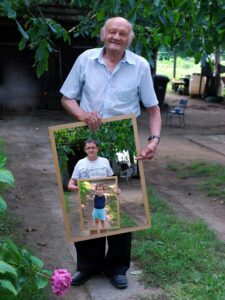 Then Cooper said, “Can I ask a question? Do you feel you are entitled to the truth?”
Then Cooper said, “Can I ask a question? Do you feel you are entitled to the truth?”
Without hesitation everyone chimed in, “Yes.” “Of course.” “Certainly.”
“That’s interesting,” he responded. “Because I don’t think my generation believes that we are. This world of uncertainty is just the hand we have been dealt. Not being sure of what is true and of what isn’t is simply the way things are.”
The irony of Cooper using entitled did not escape me. We were now being gently labeled with a word that we had probably all used to malign people of his age.
I was also struck by the chasm between our generation and Cooper’s. Yes, it made me feel very old. But I appreciated the clarity that Cooper gave to our differences and the added challenges our children and their children have in the world.
My first reaction, nonetheless, when Cooper finished, was to blurt out, “Thank you, Cooper, for pointing out that we are all conservative here.”
Though we were a group of people with mixed political and religious ideas, at this one central point we were all united. We thought that Truth existed, that it was possible to find it, and that we deserved to know what it was. This is a very traditional, very conservative idea. It goes back millennia and permeates a wide variety of ancient cultures. And we all believed it, whether liberal or not.
I was encouraged that we held this important belief in common. Searching together for the truth was not a hopeless endeavor. It was worth us all pursuing.
—
Image by Hajnalka Mahler from Pixabay

 But why does “We Three Kings” mix the minor-like Aeolian key with a chorus that is major? Is it to give the carol a Middle Eastern flavor in light of the magi coming from the east? Perhaps.
But why does “We Three Kings” mix the minor-like Aeolian key with a chorus that is major? Is it to give the carol a Middle Eastern flavor in light of the magi coming from the east? Perhaps.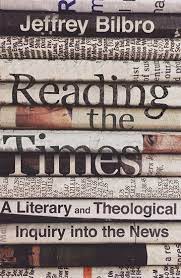
 In this way Bilbro offers more ways forward than Postman. “Instead of allowing the news to create our communities, Christians should seek to help their communities create the news.” This can begin with the simple act of walking our neighborhoods rather than isolating ourselves in cars or behind screens. On another level we can, for example, pursue redemptive publishing by reading, he suggests, things like Civil Eats, American Conservative, The Atlantic, Commonweal, Hedgehog Review and more.
In this way Bilbro offers more ways forward than Postman. “Instead of allowing the news to create our communities, Christians should seek to help their communities create the news.” This can begin with the simple act of walking our neighborhoods rather than isolating ourselves in cars or behind screens. On another level we can, for example, pursue redemptive publishing by reading, he suggests, things like Civil Eats, American Conservative, The Atlantic, Commonweal, Hedgehog Review and more.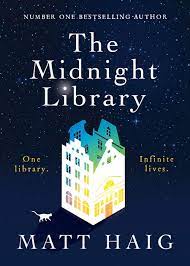
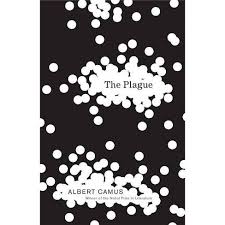
 Early on a priest says he can make sense of it (as God’s judgment) though at the end his theology fails when he sees a small child die after prolonged suffering. A conman makes sense of it by taking advantage of the hardships of others only to revert to depression when the plague lifts. A writer plows ahead with his novel, day by day and month by month, yet never gets beyond the first sentence. A doctor seeks meaning by doggedly helping others even when his efforts often have little effect.
Early on a priest says he can make sense of it (as God’s judgment) though at the end his theology fails when he sees a small child die after prolonged suffering. A conman makes sense of it by taking advantage of the hardships of others only to revert to depression when the plague lifts. A writer plows ahead with his novel, day by day and month by month, yet never gets beyond the first sentence. A doctor seeks meaning by doggedly helping others even when his efforts often have little effect.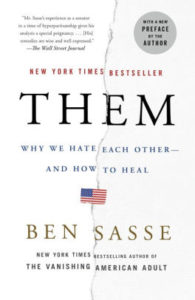
 Why? We live in a world that often seems so random and chaotic. None of us knows who will get cancer next, be in a car accident, or where the next war will break out. Experts famously fail in making such predictions. We can increase the odds of living a healthy life, but we have no guarantees.
Why? We live in a world that often seems so random and chaotic. None of us knows who will get cancer next, be in a car accident, or where the next war will break out. Experts famously fail in making such predictions. We can increase the odds of living a healthy life, but we have no guarantees. One exception is reading. One tool I’ve found that helps keep me making progress is the Goodreads Reading Challenge.
One exception is reading. One tool I’ve found that helps keep me making progress is the Goodreads Reading Challenge.  In recent years I’ve aimed at about fifty, and I’ve hit that target. This year I only read forty. That’s no cause to beat myself up. I’m sure I’ve been reading more than I would have otherwise just because that target is out there.
In recent years I’ve aimed at about fifty, and I’ve hit that target. This year I only read forty. That’s no cause to beat myself up. I’m sure I’ve been reading more than I would have otherwise just because that target is out there. A few days later, when Mary and Joseph present the infant Jesus in the temple, they were met by an old man named Simeon. God had promised him he’d see the Messiah before he died. When he saw the trio he took Jesus in his arms and said:
A few days later, when Mary and Joseph present the infant Jesus in the temple, they were met by an old man named Simeon. God had promised him he’d see the Messiah before he died. When he saw the trio he took Jesus in his arms and said:
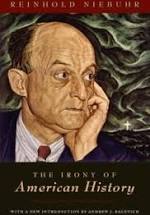
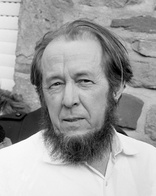 Throughout the book Niebuhr is a penetrating critic of communism’s flaws and failings, saying, for example, “Communism is a vivid object lesson in the monstrous consequences of moral complacency about the relation of dubious means to supposedly good ends” (p. 5). Yet he is also clear-eyed about how the American experiment can go haywire.
Throughout the book Niebuhr is a penetrating critic of communism’s flaws and failings, saying, for example, “Communism is a vivid object lesson in the monstrous consequences of moral complacency about the relation of dubious means to supposedly good ends” (p. 5). Yet he is also clear-eyed about how the American experiment can go haywire.